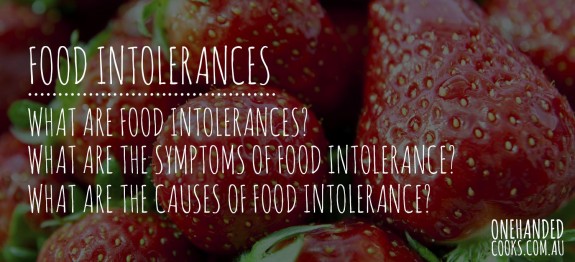Food Intolerances
What are food intolerances?
Food intolerances differ from food allergies, they are caused by a chemical reaction in the body after eating a particular food or drink rather than an immune response. Chemicals can occur naturally in foods and drinks or they can be added, and they often contribute to the flavour and smell of food. In some sensitive people these chemicals can trigger symptoms. The severity of symptoms often depends on the amount consumed, with small amounts sometimes resulting in no immediate effect.
Can children develop a food intolerance?
Babies’ gastrointestinal systems and metabolisms are immature making them more vulnerable to food chemicals hence why they prefer bland foods. The “first foods” we introduce to our babies are often low in these naturally occurring chemicals. As their digestive systems mature they are better able to tolerate highly flavourful, rich and spicy foods.
What are the symptoms of food intolerance?
Symptoms are wide ranging and often general in nature. They may include:
- Headaches or migraines
- Skin rashes
- Bloating and diarrhoea
- Sweating
- Mouth ulcers
- Sinus trouble
- Allergy-like reactions
- General irritability and restlessness
I think my child has a food intolerance, what should I do?
Because symptoms are general and wide ranging, they may be caused by something other than food. If you suspect food intolerance in your child do not try to treat it yourself, as it is important not to unnecessarily restrict your child’s diet. Hence, professional advice and diagnosis from a medical practioner or accredited practising dietitian (APD) specialising in food allergy and intolerance is important.
What are the causes of food intolerances?
Foods rich in the natural chemicals salicylates, amines and glutamate are most likely to cause intolerance in sensitive children. These are found in a wide range of foods.
The foods most common to cause intolerance reactions include:
- Strawberries, citrus fruits and tomatoes
- Cheese and chocolate
- Monosodium glutamate (MSG)
- Food additives and preservatives
What about lactose intolerance?
Lactose is a natural sugar found in milk and dairy products. Lactose intolerance occurs from the lack of enzyme, lactase, required to break down and digest lactose. Common symptoms include bloating, tummy pain and diarrhoea. Infants and children with lactase deficiency may be able to tolerate small amounts of lactose containing foods such as yoghurt and cheese, even milk particularly if spaced out. In other cases lactose intolerance may only be temporary. Calcium is essential in the diets of babies and toddlers so it is important to consume adequate amounts. Once again, it is recommended you don’t modify your child’s diet or eliminate any foods before seeking appropriate professional advice.
Where can I go for more information?
- Australasian Society of Clinical Immunology and Allergy www.allergy.org.au
- To find an accredited practising dietitian (APD) go to www.daa.asn.au





























posted by Natalie Schreurs on October 18, 2012
Or seek the help of a well qualified and experienced Naturopath who treats children. They will also have the expertise to help investigate possible food intolerances further and recommend age appropriate changes to your child’s diet.
posted by Natalie Schreurs on October 18, 2012
http://www.fedup.com.au is also another good source of information.